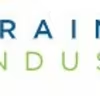Boost Your Industry IQ: The Importance of Industry-specific Kno…

“Knowledge is power” is one of the most often-quoted sayings in anything to do with learning and the acquisition of knowledge. But is it enough? Rob Liano, an author and motivation coach, believes not. He is quoted saying, “Knowledge is power? No. Knowledge on its own is nothing, but the application of useful knowledge, now that is powerful.”
There is truth to what Liano said. Knowledge is indeed at its most powerful when put to appropriate use. Any consultant, salesperson or training professional will know the power of being able to converse convincingly with clients in a given industry. After all, every industry has its own “language” or jargon, and there’s nothing worse than being an “outsider” and not understanding the fundamentals of your industry’s specific language. The modern training professional needs to understand industry-specific language in order to be convincing and, thus, thrive.
It’s not about being a technical expert for a given industry but, more importantly, understanding its fundamentals, issues and trends. With that, your can communicate effectively with stakeholders and other industry professionals in a manner that is professional, authentic and convincing.
The Importance of Industry Knowledge
Industry, a form of “industry IQ,” is acquired over time and with hard work and commitment. Critically, industry-specific knowledge or intelligence provides a competitive edge for any professional who is a de facto “outsider.” It has been shown to improve sales, for example. The importance of industry knowledge is pertinent in any market, and particularly in an industry that is complex for the layperson, such as learning and development (L&D).
The technical and engineering sectors are also renowned for having its own taxonomy and jargon that can be very challenging for an entry level marketer, salesperson or consultant to navigate and establish credibility with clients. Software development includes technical jargon ranging from “data structures and algorithms” and “source control,” to “cross-platform software” and “IDEs” (integrated development environments) and some understanding of those terms will be imperative for employees in these industries, including corporate trainers delivering information technology (IT) and technical training.
The value, therefore, of industry knowledge is not only manifold but critical. A strong industry IQ provides the following benefits:
An in-depth understanding of an industry’s fundamentals.
An ability to “read” an industry and, hence, your learners and their needs.
Being able to look and act professional with others in the industry.
Confidence in what you do and can achieve in your industry.
Greater savviness about future trends and potential in a given industry.
Knowledge acquisition is not a passive pursuit. It must be done in a proactive, focused way. Nor is knowledge-building a once-off activity. As Mark Cuban, the American billionaire entrepreneur and media proprietor, says, “You need to turn over every rock and open every door to learn your industry. This process never ends.”
There are many ways to actively acquire industry-specific knowledge, including:
Being mentored by an industry expert.
Networking with professionals in your industry, especially with industry “insiders” with a wealth of experience.
Having access to structured eLearning tools and a curriculum that has been developed by qualified industry experts.
Attending conferences, seminars, workshops and other forums in which knowledge-gathering can be done.
Reading trade/industry publications.
The Role of Self-paced eLearning
Curiosity about your industry is an essential part of boosting your industry IQ. That curiosity should inspire both formal and informal types of learning, which can be immensely helpful in better understanding the ins and outs of an industry. Self-learning is a key aspect of a person’s acquisition of industry knowledge, with self-paced eLearning an especially useful means by which it can occur.
There are a few sound benefits to self-paced eLearning, including:
The learning is at your desired pace, aligned with your work and other obligations, making for a more focused, less stressful commitment to the required coursework. eLearning is better at combating the information overload that can disrupt the learning process.
Modular learning, which is a cornerstone of most eLearning courses, usually encompasses a variety of different teaching methodologies and learning activities, making for a stimulating learning that is organic and diversified, rather than stiff and didactic; and
Interactivity, whereby the learning is active in which there is active engagement by the student with the course material in a way that adds practical depth and greater understanding about core principles, terms and issues.
Accessing Viable Industry Sources
You can also boost your industry IQ by acquiring knowledge from trusted sources that is timely (i.e., constantly updated) an provides specifically curated content for your unique industry. Increasingly, this is done with online platforms offering industry-specific insights. Secondary data, as it is called, can be invaluable to acquiring further intelligence about an industry. However, knowing which sources to trust is far easier said than done. It can be downright precarious, given how the internet is filled with misleading information and research.
One can use criteria to evaluate secondary data sources by asking questions of said data, such as: “From which source was the information collected?” and “Does the data source appear to be reputable and reliable?” to “When, how and from where was the information collected?” Furthermore, one should ask, “Can the information be cross-referenced with other, presumably reputable sources?” Source evaluation is a fine art, including factors such as the verifiable authority of who wrote the data and the currency of the information provided.
However, all of this begs an important question: Who has time to evaluate all of these questions each time data about an industry needs to be accessed and used, right? It would be downright exhausting! Industry IQ cannot be built “at random” and building one’s own library of knowledge to gain better, more in-depth understanding of an industry is impossible by oneself. So, what is a training professional to do?
An ideal solution is trusting in an online reference service that focuses on providing timely, fast-evolving data (read: intelligence) regarding a specific industry based on its thorough global market research and sophisticated industry analysis. There is comfort and security in having access to such a resource online, which also acts as an online learning resource.
Knowledge. Learning. Trusted data sources. Those are the three pillars upon which a person can build their industry-specific IQ or intelligence. Being self-critical and demanding on oneself is important. As the Chinese philosopher, Confucius, said: “To know what you know and what you do not know, that is true knowledge.”
The key is understanding the critical fundamentals and unique attributes that define an industry, so that you can hone and sharpen your industry IQ. Get that right, and the training industry will be your oyster.
Vittorio Bollo
Vittorio Bollo is a professional writer who supports Cambashi’s Industry Training marketing content with his wealth of experience and knowledge in relation to industry training, research and content writing.
Like this project
Posted Nov 8, 2023
Building your industry knowledge as a learning leader will position you for success in your field and help you gain buy-in from stakeholders.
Likes
0
Views
10
Clients

Training Industry





